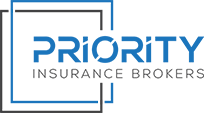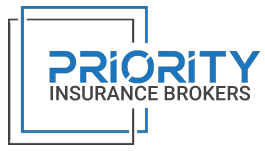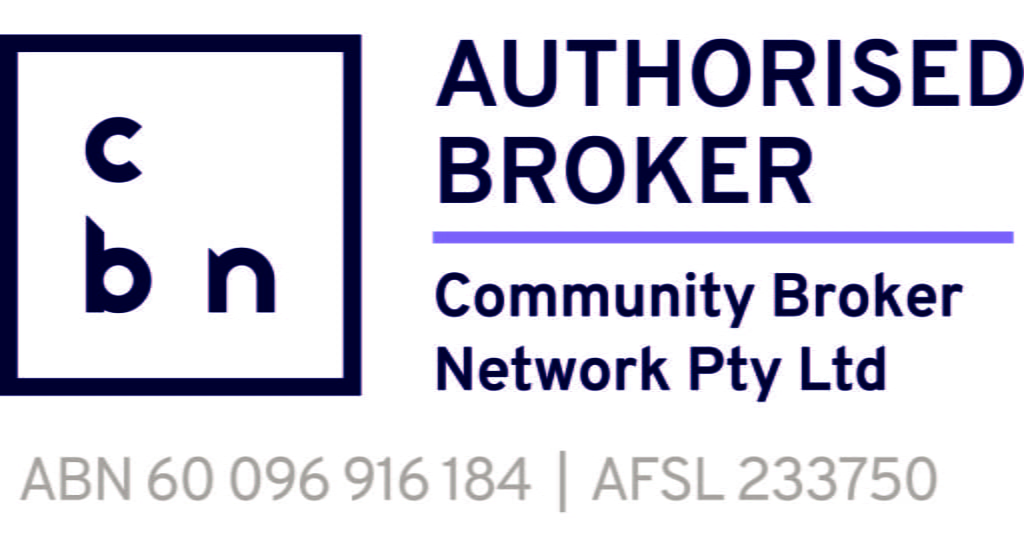How Much Does Business Insurance Cost?
Running a business comes with many risks, and protecting your venture from the unexpected is important. That’s where business insurance comes in. Business insurance is a specific type of insurance that provides financial coverage to protect businesses against various risks, such as liability claims, property damage, and loss of income due to a disruption in operations. However, the cost of business insurance can vary widely, depending on several factors. In this blog post, we’ll explore the different types of business insurance and what affects their costs.
The Different Types of Business Insurance
Business Package Insurance
This is one of the most commonly purchased types of insurance by small business owners. Business package insurance combines various policies into one comprehensive package that fits your business’s needs. It typically includes property damage, business interruption, and public liability coverage.
Business Travel Insurance
If your business requires you or your team to travel, business travel insurance covers you. It protects against travel-related risks, such as loss of luggage, medical emergencies, and flight cancellations. It also covers your liabilities when an employee is travelling on business.
Contractual Liability Insurance
Contractual liability insurance is necessary if your business enters into contracts or leases. It covers you for legal liability when you breach an agreement, guarantee, or lease.
Cyber Insurance
Cyber insurance is becoming increasingly essential as more businesses move their operations online. Cyber insurance protects your business against cyber threats like data breaches, cyber-attacks, and ransomware. It provides coverage for the cost of investigating and recovering from a cyber incident and liability for claims against your business for failing to protect data.
Management Liability Insurance
Management liability insurance protects directors and officers against lawsuits arising from their management decisions. It includes coverage for legal defence costs, settlement payments, and court judgments.
Plant and Equipment
If your business relies on machinery or other types of equipment, plant and equipment insurance will protect these vital assets. It provides coverage against damage resulting from fire, theft, vandalism, and other risks.
Professional Indemnity
Professional indemnity insurance covers your business against claims of professional negligence. It provides coverage for legal costs and compensation payments your business may have to pay a client if you or your business cause financial harm due to substandard advice or services.
Public Liability Insurance
If you interact with the public in any way, public liability insurance is essential. It provides coverage for claims arising from bodily injury, property damage, and legal fees resulting from your business activities.
Truck Insurance
Truck insurance provides commercial vehicle insurance coverage for trucks, trailers, and other commercial vehicles. It includes coverage for property damage or personal injury that may arise from a commercial vehicle accident.
Liability Insurance: What Is It and Why Do You Need It?

Liability insurance protects business owners from financial loss if someone is injured on their property or as a result of their business operations. This coverage can help cover the costs associated with legal fees, medical expenses, and damages that may be awarded in a lawsuit. Some situations where liability insurance could come into play include slip and fall accidents, property damage, and injuries caused by your business’s products or services.
When a business is sued, it can be a costly and stressful situation, especially for small business owners. Liability insurance can mitigate these costs and make the legal process smoother. Additionally, many clients and customers may require proof of liability insurance before doing business with you, making it a crucial aspect of building and maintaining your company’s reputation.
Another important aspect of liability insurance covers advertising injuries, including claims of defamation, slander, and copyright infringement. In today’s business world, where online reviews can make or break a company’s reputation, protecting yourself from these types of claims is essential. An advertising injury lawsuit can be time-consuming and damaging to your business, but having liability insurance can help lessen the impact.
Liability insurance typically does not cover employee injuries or damage to your own property. For these types of incidents, you’ll need to have separate coverage in place. It’s also important to note that liability insurance does not cover intentional acts like fraud or criminal activity. When choosing a policy, be sure to read the fine print and understand what is and isn’t covered.
The Cost Factors for Liability Insurance
Size of your business: The size of your business is one of the most significant factors affecting the cost of Liability Insurance. The larger your business, the higher the insurance premium. This is because the risk of liability claims increases as the business expands. The insurance company will assess the potential risks and exposures of your business operations, employees, and equipment before determining the cost of the policy. For instance, a small retail store will have lower insurance premiums than a large manufacturing plant.
Location of your business: The location of your business is another significant factor that determines the cost of Liability Insurance. The insurance premiums are influenced by geographical factors such as state laws and regulations, local weather conditions, and the number of claims filed in your area. For instance, if your business is in an area prone to hurricanes or earthquakes, your insurance premiums will be higher than another business in a safer location.
The industry you’re in: The industry in which your business operates is another key factor in determining the cost of Liability Insurance. Every industry has its unique risks and liabilities that must be considered by the insurers while calculating the policy premium. For example, a construction company will have higher insurance premiums than a small accounting firm. The construction company would be exposed to potential risks like employee injuries, damage to third-party property, and accidents at the job site.
Coverage limits: The policy’s coverage limits determine the protection you can receive under the policy. The higher the coverage limits, the more you’ll pay in premiums. It is essential to consider this factor while calculating the cost of Liability Insurance. Business owners should critically analyse their business operations and choose the right level of coverage to meet their needs.
Property Insurance: Protecting Your Physical Assets
Natural Disasters
Natural disasters like earthquakes, hurricanes, and floods can cause widespread damage, leaving businesses or homeowners with damaged equipment or property. Property insurance can help cover the costs of repairing or replacing the physical assets that have been damaged, giving property owners peace of mind in the aftermath of a disaster.
Theft
Theft is another scenario where property insurance provides financial protection. Theft can happen to anyone, and it is essential to have your valuable physical assets covered by insurance. Property insurance can help cover the cost of replacement or repair, providing financial relief from a situation that can be very stressful.
Fire
Fire damage is one of the most common causes of property loss. Depending on the extent of the damage, repair costs can be quite high, which is where property insurance comes in to save the day. Business owners can protect themselves from the financial burden of repairing fire damage by having property insurance.
Vandalism
Vandalism is a crime that can cause significant damage to your property. Graffiti, broken windows, and other forms of vandalism can hurt the aesthetic and value of your property. However, property insurance can help cover the cost of repair and replacement associated with these types of damages, saving you money and minimising the stress of dealing with the aftermath.
Tips for Saving on Business Insurance
Bundling insurance packages
One of the easiest ways to save on business insurance is to bundle your policies with the same carrier. Many insurance companies offer discounts to customers who purchase multiple types of coverage, such as liability, property, and workers’ compensation insurance. Bundling can also simplify your billing and claims process because you only need to contact one company instead of several. Consider working with an experienced agent who can help you identify which policies to bundle and how to design a comprehensive package that meets your unique needs.
Reviewing and updating your coverage
Another way to reduce your insurance expenses is to review and update your coverage regularly. This means assessing your risks, understanding your policy limits and deductibles, and making necessary changes based on your business’s growth and industry trends. For instance, if you’ve recently added new equipment, hired employees, or expanded your operations, you may need more coverage or different types of policies. Alternatively, if you’ve downsised or eliminated certain activities, you can reduce your premiums by adjusting your coverage accordingly. You can avoid gaps in your insurance and unnecessary expenses by staying proactive and informed.
Using a reputable broker
Finally, working with a reputable insurance broker can help you save money and time while ensuring sufficient protection. A broker can help you shop for the best rates and coverage options from multiple insurance carriers, negotiate on your behalf, and provide expert advice and support. Additionally, a broker can help you identify potential risks and exposures you may have yet to consider and recommend ways to mitigate them. When choosing a broker, look for someone with experience with businesses like yours who is licensed and certified and has a good industry reputation.
Common Mistakes Businesses Make When Purchasing Insurance

Underinsuring assets – Many companies assume that their insurance policy automatically covers all their assets, including buildings, equipment, and inventory. However, it’s critical to evaluate the replacement cost of these assets regularly and ensure that your policy limits are sufficient to replace them in the event of damage or loss. You must do so to avoid out-of-pocket expenses that can significantly strain your finances. Check your policy limits regularly, particularly if you’ve made significant investments or acquisitions over time.
Skipping on crucial coverages – Some policies have specific ranges that may not be apparent on the surface but can be critical depending on the type of business you run. For instance, if you operate in a high-risk industry, you might need additional coverage that accounts for potential liability. Similarly, if your business involves data storage and handling, you must have cyber liability insurance to protect against breaches and cyberattacks. Rather than purchasing a generic policy, work with your insurance agent to customise a policy that accounts for your unique risks and vulnerabilities.
Ignoring the fine print – It’s easy to get carried away with the excitement of finding an insurance policy with a low premium. However, it’s essential to read the fine print and understand the exclusions and limitations of the policy. For instance, if you’ve purchased a policy that only covers named perils, you might not be protected in the event of a loss that’s not explicitly listed on the policy. Always read the policy carefully before signing up so that you’re aware of what’s covered and what’s not.
Failing to shop around – Another common mistake businesses make is not shopping around for policies before making a decision. Different insurers may offer varying rates, coverages, and terms, and you might miss out on significant savings or better coverage if you don’t explore your options. Take the time to compare multiple quotes before choosing a policy, and don’t hesitate to ask your insurance agent questions or for additional information to clarify terms or coverages.
Forgetting to update policies – Finally, remember that your business’s insurance needs will likely change over time, and it’s crucial to update your policies accordingly. This could include updating your policy limits, adding coverage for new assets, or removing coverages for assets you no longer have. You must update your policy to avoid gaps in coverage that expose you to financial risks.
Frequently Asked Questions
How much for public liability insurance?
The cost of public liability insurance will depend on a variety of factors, such as the type and size of your business, your industry, the level of coverage you purchase, and the insurer. Generally, policies can range from $500 to $2,000 per year for small businesses with no claims or additional risk exposures. However, premiums may be higher for certain industries that are considered high-risk. It’s important to shop around and compare quotes to find the right policy for your business at an affordable rate.
How much is workers’ compensation insurance in NSW?
The cost of workers’ compensation insurance in NSW will depend on your industry and your work type. Generally, employers must purchase coverage for their employees from an approved insurer. Factors such as payroll size, industry classification, claims history, and safety record determine your premium. Premiums can range from $500 per year for low-hazard industries up to $15,000 or more per year for some higher-risk roles. You may be eligible for certain discounts if you have a strong safety record and limited claims history.
How long does an insurance claim take in Australia?
The time it takes to process an insurance claim in Australia will depend on the type and complexity of the claim and any additional documentation that may be required. Generally speaking, most claims are processed within a few weeks or months. If you need help filing a claim, contact your insurance provider for more information and guidance. They should be able to provide you with an estimated timeline and walk you through the entire process. Be sure to keep all of your paperwork and any additional documents in a safe place until your claim is resolved.
Conclusion
Running a successful business requires preparing for unexpected events that cause losses or financial harm. It’s essential to consider each type of business insurance carefully and select the most relevant to your business and industry. By obtaining the right coverage, you can ensure that your business is protected against any potential risks, giving you peace of mind to focus on growing your business.








